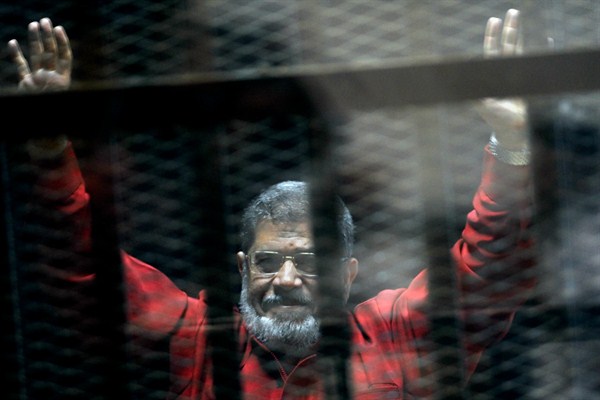Editor’s Note: Every Friday, Andrew Green curates the top news and analysis from and about the African continent.
The death of Mohammed Morsi, Egypt’s first democratically elected president, in a Cairo courtroom Monday has put another spotlight on the repressive regime that replaced him in a 2013 military coup. Under President Abdel Fattah al-Sisi, the Egyptian government has imprisoned thousands of dissidents and members of Morsi’s now-banned Muslim Brotherhood, while also cracking down on freedom of expression and tightening its control over the media. True to form, Sisi’s government even restricted how journalists could report on Morsi’s death this week.
The authoritarian atmosphere in Egypt today stands in marked contrast to seven years ago, when Morsi and the Muslim Brotherhood swept into power after winning elections at the height of the Arab Spring, following the 2011 overthrow of longtime Egyptian leader Hosni Mubarak.

